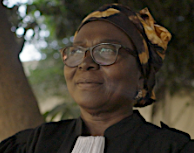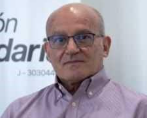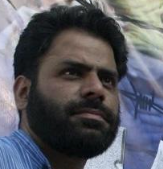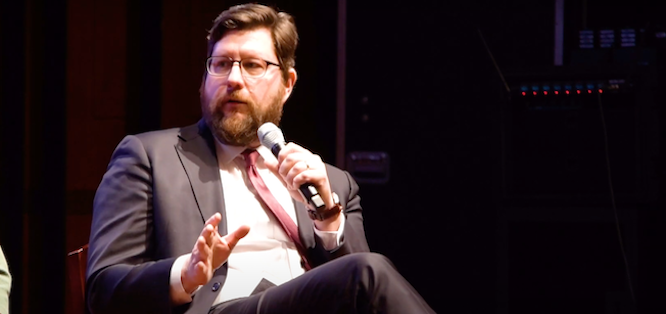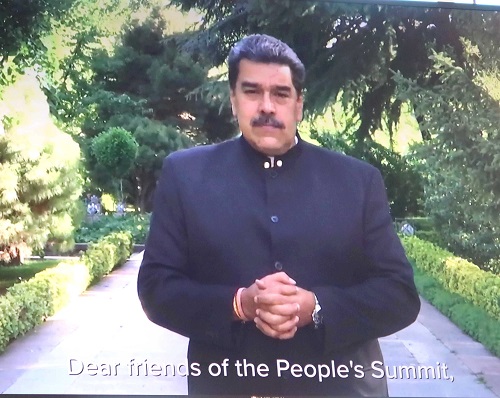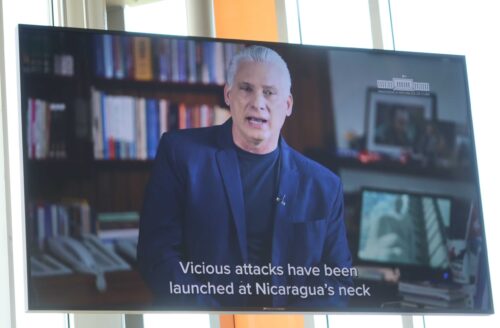While the political balance between progressive and reactionary states south of the Rio Grande continues to tip to the left, even the corporate press pronounced Biden’s June Summit of the Americas meeting in Los Angeles a flop. Most recently, Colombia elected its first left-leaning president, following similar victories in Chile, Peru, and Honduras, which in turn followed Bolivia, Argentina, and Mexico. And the frontrunner in Brazil’s presidential contest slated for October is a leftist. However, Nicaragua, Venezuela, and especially Cuba – countries led by explicitly socialist parties – are critically threatened by US imperialism, subjected to severe sanctions. In short, the geopolitical situation in the Western Hemisphere remains volatile. What does this portend for US hegemony and for socialism?
Ebb and flow of the class struggle in Latin America
The tidal metaphor describes the shifting constellations of governments in what Washington long considered its exclusive domain ever since the 1823 Monroe Doctrine. The Pink Tide is a reaction to, and a struggle against, neoliberalism, which is the contemporary form of capitalism. The Pink Tide first entered its flow phase in 1998 with the election of Hugo Chávez as president of Venezuela. What followed was truly a sea change with a developing expression of sovereignty and independence. An alphabet soup of regionally integrated entities arose: ALBA, UNASUR, MERCOSUR, Petrocaribe, CELAC, etc.
Upon assuming state power, the emerging left governments paradoxically inherit the very problems that precipitated the popular discontent that had led to their ascendence. And that is not to mention the looming presence of the Colossus of the North whose official policy is zero tolerance of insubordination to the empire.
The Pink Tide went into an ebb phase around 2015 with the election of hard-right Mauricio Macri in Argentina. A US-backed coup in Honduras had already deposed Manuel Zelaya’s leftist government in 2009 and foreshadowed a later US-instigated regime-change operation in Bolivia, overthrowing Evo Morales in 2020. “Lawfare” coups in Paraguay and Brazil along with electoral defeats of leftists in Chile and Uruguay shifted the balance right. In Brazil, frontrunner Luiz Inácio Lula da Silva (known colloquially as “Lula”) was forced to sit out the presidential election in prison on trumped up charges, allowing Jair Bolsonaro, the “Trump of the Tropics,” to win in 2018.
Mexico kicks off the second left wave, July 2018
Prospects for hemispheric progressivism again began looking bullish with Andrés Manuel López Obrador’s (AMLO) victory in July 2018 after two previous attempts at the Mexican presidency, which were widely considered fraudulently stolen from him. A left turn by the second largest economy in Latin America, eleventh in the world, and the US’s second largest trading partner was not insignificant after decades of conservative rule. AMLO, whose MORENA party swept the 2018 national elections, has since shown fortitude in standing up to Washington.
After it became apparent that Biden would not invite Venezuela, Cuba, and Nicaragua to his Summit of the Americas in June of this year, AMLO led a boycott of the summit to be joined by Bolivia, Honduras, Guatemala, and St. Vincent and the Grenadines. El Salvador and Uruguay also purposely missed the party, albeit for different reasons.
AMLO pointedly made a state visit to Cuba and previously had conspicuously welcomed Venezuelan President Maduro as an honored guest. AMLO stayed firm, even after Biden sent a special delegation to Mexico City apparently to remind him about the career prospects of others – such as Qaddafi, Noriega, and Hussein – who similarly failed to heed imperial summons.
Then on July 4th, the Mexican president facetiously launched a campaign to take down the Statue of Liberty, “no longer a symbol of liberty,” because of the US prosecution of Julian Assange.
A new president is anointed in Venezuela, January 2019
Tempering any initial leftist euphoria over the ending of conservative rule in Mexico were the continuing US regime-change efforts against Venezuela designed to bring down the leading left state in the region. In one of the more bizarre examples of imperial hubris, US Vice President Pence called a person unknown to over 80% of the Venezuelan public and one who had never run for national office. Pence asked Juan Guaidó if he would like to be president of Venezuela. The next day, on January 23, 2019, this US security asset declared himself “interim president” of Venezuela on a Caracas street corner. US President Trump immediately recognized Guaidó as the legitimate chief-of-state followed by some 60 of the empire’s loyal vassals.
Three years later, barely a baker’s dozen of states currently recognize Juan Guaidó as president of Venezuela. Speaker of the House Nancy Pelosi, who once gushed how “thrilled” she was with the puppet president, now doesn’t even recognize his name. The hapless Guaidó, by the way, failed to secure an invitation to Biden’s summit in Los Angeles last June now that he is such an embarrassment.
After Obama first sanctioned Venezuela in 2015, the illegal measures were intensified by Trump and continued for the most part by Biden. After deliberately targeting Venezuela’s cash cow, the oil industry, the economy was devastated. Today, those fortunes are being reversed. With assistance from China, Russia, and Iran along with adroit economic planning and some concessions to garner support of the domestic bourgeoisie, the Venezuelan economy revitalized by 2022.
Venezuelan President Maduro stood firm against repeated coup attempts by Juan Guaidó and military incursions from Colombia acting as a US proxy. Last November, the municipal and regional elections were a double triumph for Venezuela’s Bolivarian Revolution: the ruling Socialist Party (PSUV) won significantly while the extreme right opposition (including Guaidó’s party) was compelled to participate, implicitly recognizing the Maduro government.
A major sticking point blighting relations between the US and Venezuela is the extradition of Venezuelan diplomat Alex Saab and his imprisonment in Miami. Saab had been instrumental in legally helping Venezuela circumvent the illegal US blockade. Apparently, the empire believes it has the prerogative to decide who other countries may appoint as their diplomats and to persecute those they do not like. This is despite the Vienna Convention, to which the US is a signatory and from which absolute diplomatic immunity is provided even in the time of war. However, under Mr. Biden’s “rules-based order” – as opposed to international law – the US makes the rules, and the rest of humanity must follow the orders.
Rightist replaced in Argentina and a coup in Bolivia, Fall 2019
The Pink Tide again began to rise when, on October 27, 2019, Alberto Fernández replaced Mauricio Macri, whose neoliberal policies had wrecked the economy in Argentina. The new president is aligned with more conservative elements within Peronism compared to his vice-president. The two Peronist factions have continued to wrangle over how to extricate Argentina from the debt-grip of the IMF and international finance, with the more progressive side recently gaining the upper hand.
Then the Pink Tide suffered a major reversal only two weeks after its success in Argentina, when a US-backed coup overthrew leftist President Evo Morales in neighboring Bolivia. With the connivance of the Washington-based Organization of American States (OAS), Evo had to flee for his life. Rightist Senator Jeanine Áñez then entered the Bolivian presidential palace with a bible in her hand – I am not making this up –exorcized the building of indigenous paganism and declared herself temporary president. Major popular protests by the largely indigenous and poor populace followed, only to be brutally repressed with many fatalities.
Almost precisely a year after the initial coup, Evo’s former minister of finance and a member of his Movement for Socialism (MAS) Party, Luis Arce, ran for the presidency. His landslide win vindicated Evo’s initial president victory in 2019.
Marxist-Leninist assumes presidency in Peru, June 2021 – for now
After four presidents in three years, in the ever mercurial and unpredictable Peru, a rural teacher and peasant leader from the Marxist-Leninist Perú Libre Party led the presidential primary election. Pedro Castillo faced far-right Keiko Fujimori, the daughter of an imprisoned former president and convicted human rights violator. Castillo was so unknown that the major press services had to scramble to find a photograph of him.
Castillo was eventually declared the winner of the runoff on June 6, 2021, after a protracted vote count, but by a razor thin margin. With only a minority in the legislature, Castillo has been clinging to elected office by this fingernails ever since. Right off, he was pressured to remove his leftist foreign minister. Since then, he has survived two impeachment attempts, four cabinets, and his banishment from his own political party.
The capital city of Peru, it should be noted, gave its name to the ill-fated Lima Group, a cabal of US client states aligned against Venezuela. Even before Peru voted red, the Lima Group had drowned in a rising Pink Tide.
Left victories in Central America, November and December 2021
The US deemed Nicaragua’s presidential election an undemocratic fraud nearly a year in advance as part of a larger regime-change campaign against left-leaning governments. Disregarding Washington’s call to boycott, a respectable 65% of the Nicaraguan electorate went to the polls on November 11, 2021, and 76% of the voters re-elected Sandinista President Daniel Ortega. The landslide victory was a testament to the Sandinistas’ success in serving Nicaragua’s poor and a repudiation of the 2018 coup attempt fomented by the US.
Following the left reaffirmation in Nicaragua was the long-awaited and much savored victory in what was once called the USS Honduras, alluding to that country’s role as a base for US counter-insurgency operations during the “dirty wars” in Central America. Xiomara Castro, the first female president, was swept in by a landslide on November 28. The slogan of the now triumphant resistance front was: “They fear us because we have no fear.”
It had been twelve years since a US-backed coup overthrew Manuel Zelaya, who was the democratically elected president and husband of Castro. The country had devolved into a state where the former president, Juan Orlando Hernández (JOH), was an unindicted drug smuggler, and where the intellectual authors who ordered the assassination of indigenous environmental leader Berta Cáceres ran free, Afro-descendent people and women were murdered with impunity, gang violence was widespread, and state protection from the pandemic was grossly deficient. Once the US government’s darling, JOH will likely spend the rest of his days behind bars given that he has been extradited to the US to face drug trafficking charges.
Leftists win in Chile and Colombia with Brazil maybe next
Last December 19, Gabriel Boric won the Chilean presidential election by a landslide against far-right José Antonio Kast. The 35-year-old Boric was a leader in the massive protests in 2019 and 2020 against corrupt President Sebastian Piñera. The slogan of the protests was: “If Chile was the birthplace of neoliberalism, then it will also be its graveyard!” The victory was a repudiation of the Pinochet legacy.
A constituent assembly, where the left won the majority of the delegates in a May election, has rewritten the Pinochet-era constitution. But current polls suggest that the electorate may reject it. With a 59% disapproval rating and severe unrest in the territory of the Mapuche indigenous people, Boric has hard times ahead.
Then, on June 19, history was made in the leading client state of the US in the Americas when Gustavo Petro became the first leftist president-elect ever, and his running mate, Francia Márquez, the first Afro-descendent vice president-elect. Petro, a former leftist guerilla and onetime mayor of Bogotá, had since shifted toward the center politically. But in the comparison to the far-right rule of former President Álvaro Uribe and his successors, Colombia has dramatically and decisively shifted to the left. Relations with Venezuela are being normalized and the Monómeros chemical plant, which was handed over to the Guaidó clique and run into the ground, may get returned to Caracas and restart producing needed fertilizers.
Even more portentous than the left victory in Colombia would be one in neighboring Brazil, the largest economy in Latin America and the eighth in the world. That may happen with the October 2 presidential election where the frontrunner, Lula, has a substantial lead In the polls.
Troubled waters ahead as the Pink Tide surges
In conclusion, the surging Pink Tide is symptomatic of the increasingly manifest inability of neoliberalism to address the fundamental needs of the populace. Popular upheavals in Latin America are not isolated, but are indicative of a reaction to increasing inflation, poverty, crime, and drug-related violence. Demonstrations in July in Ecuador led by the indigenous CONAIE organization almost toppled the government of right-wing banker Guillermo Lasso over grievances regarding fuel prices, debts, and illegal mining. Panama is in “permanent strike.”
The living standards of poor and working people globally are dramatically being eroded by a world order where the US and its imperial allies have imposed sanctions – what the UN calls unilateral coercive measures – on a third of humanity.
The US may still be the hemispheric hegemon, but the edifice is corroding. While the US’s Millennium Challenge Corporation falters, China’s Belt and Road Initiative (BRI) has made major inroads in Latin America as it has in Asia and Africa. Argentina joined the BRI last February, following 19 other regional states including Bolivia, Chile, Uruguay, Nicaragua, and Venezuela.
The BRICS summit of Brazil, Russia, India, China, and South Africa was held virtually in June, representing some 30% of the world’s economy and 40% of its population. Argentina attended and is slated to become the next member of an expanded group along with Iran and possibly others such as Indonesia, Niger, and Egypt.
China has become the region’s largest creditor and second-largest trading partner after the US. China’s trade with Latin America and the Caribbean grew 26-fold between 2000 and 2020 and is expected to more than double by 2035. China has provided a vital lifeline for states attacked by the US and room for newfound independence from the hegemon. Particularly when the US weaponized the Covid pandemic by increasing pressure on left states, China filled in.
Despite a resurgent Pink Tide, the US hybrid warfare measures against the explicitly socialist countries in Latin America has created a precarious and critical inflection point. Cuba solidarity activist W. T. Whitney warns: “Thanks to the US blockade, Cuba’s economic situation is more desperate than ever.”
The post
The Pink Tide Surges in Latin America first appeared on
Dissident Voice.
This post was originally published on Dissident Voice.
